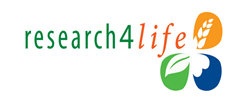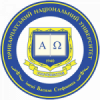Moral and Aesthetic Aspect of the Professional Training of Teachers
DOI:
https://doi.org/10.15330/jpnu.4.1.26-33Keywords:
professional education, moral and aesthetic readiness, pedagogical activity, professional training of teachersAbstract
The article highlights the results of diagnosis of forming moral and aesthetic component of personal and professional readiness of teachers to educational activities in school. The study of moral and aesthetic readiness of students was conveyed using the method of diagnosis empathetic abilities (V. Boyko), the author's methods of detection of readiness for activities of actional moral and aesthetic sense and personal predisposition to conflict behavior (test K. Thomas). The experiment proved that future teachers have had developed moral ideals and spiritual values; and formed aesthetic consciousness (feelings, attitudes, tastes, needs, feelings) and motivation and are ready for active transformative activities in the system of interpersonal communication. The majority of future teachers who participated in the study display a lack of following formed skills and abilities: attention, perception and thinking focused on the state, problems and behavior of another person; emotional sensitivity, the abilities to observe behavior of a partner, traits that promote openness, the ability to understand another person on the mutual basis due to emotional flexibility and the ability to accept other behaviour. This may adversely affect their future professional activities, including working with neglected pupils and their parents. The author considers that a high level of moral consciousness of a teacher being a unity of rational and sensual aspects to facilitate moral and aesthetic relations in professional collaboration










